Faculty Investigators
HudsonAlpha internationally-renowned faculty members are committed to making impactful discoveries in genomics and genetics that improve health and create a more sustainable world.
HudsonAlpha internationally-renowned faculty members are committed to making impactful discoveries in genomics and genetics that improve health and create a more sustainable world.

Function of regulatory regions of the human genome
Eric Mendenhall, PhD, studies gene regulation and how its dysfunction leads to human disease. He also develops new technology to stay on the cutting-edge of genetics and genomics research.

Comparative, functional and evolutionary genomics in human and animals
The Wang Lab investigates the genetic and epigenetic regulation of gene expression in vertebrates and insects with a focus on allelic imbalance (AI). Diploid organisms inherit one set of haploid genome from the mother and one from the father, so relative equal mRNA expression of the two parental alleles is expected and observed for most genes in the genome. However, a subset of genes are expressed preferentially from one allele, and this deviation from 50%:50% in mRNA abundance is called allelic imbalance. Alterations of allelic imbalance are often associated with human and animal diseases including cancer, imprinting syndromes, aging and hypertensive disorders during pregnancy such as pre-eclampsia. The Wang Lab is working on general and extreme forms of allelic imbalance, including AI caused by cis- and trans-regulation of gene expression, genomic imprinting and X chromosome inactivation, through the profile of allele-specific expression (ASE), allele-specific DNA methylation (ASM) and allele-specific histone modifications. The goal is to understand the origin, evolution and mechanism of allelic imbalance and predict how aberrant AI pattern is associated with disorders in human and other animals. In collaboration with Ruth Ley, PhD, of Cornell University, Wang compared the gut metagenomes of anxiety patients and their normal identical twin from the TwinsUK project and identified differences in species composition/abundance and biological functional pathways. The Wang Lab is also interested in comparative analyses of gut metagenomes, meta-transcriptomes and meta-methylomes in human and animal diseases.
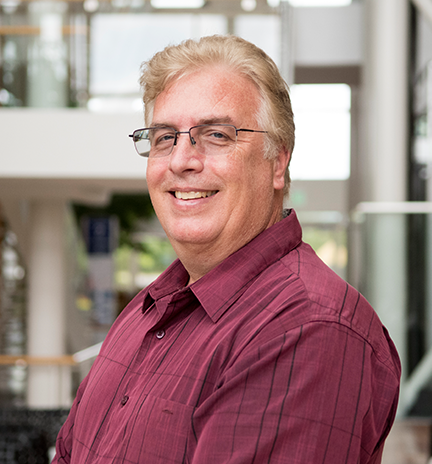
Ethical, legal and social implications of genetics
Thomas May, PhD, is a professor of bioethics at the Elson S. Boyd College of Medicine at Washington State University. May earned his PhD in philosophy from Bowling Green State University in 1994, followed by fellowships at the University of Minnesota Center for Biomedical Ethics and in the department of bioethics at the Cleveland Clinic Foundation. He is an expert in bioethics, especially issues at the intersection of medicine, public health, and moral/social/political philosophy. May’s primary areas of expertise include ethical, legal, and social implications of genetics, pandemic preparedness and response, and using genomic testing to help adoptees fill gaps in family health history. May is focused on issues of how autonomy relates to self-identity and well-being, the role of autonomy in deciding how rights to genomic information, as well as rights to genomic ignorance, should be framed, and the assessment of risk within the context of other-regarding implications that emerge from genomic information. Another area that May is heavily involved in is how access to the information contained in an individual’s genome could address adoptees’ lack of health history. May is a member of the Genomic Family History Project consortium that aims to create guidance concerning genetic testing to fill gaps in family health history for adopted persons and recommend best practices in these areas.

Genetics and treatment of neurofibromatosis type 1; Genetics and genomics education; Integration of genetics into medical practice
Bruce Korf, MD, PhD, completed his undergraduate studies and MD at Cornell University and received his PhD in genetics and cell biology from Rockefeller University. He then did training in pediatrics, child neurology and genetics at Children’s Hospital, Boston, and is board certified in all three areas, as well as clinical cytogenetics and clinical molecular genetics. He served as clinical director and associate chief of the Children’s Hospital, Boston Division of Genetics until 1999, when he assumed the role of medical director of the Harvard-Partners Center for Genetics and Genomics. In 2003 he moved to University of Alabama at Birmingham, where he is the Wayne H. and Sara Crews Finley Chair in Medical Genetics, and director of the Heflin Center for Genomic Sciences. From 2003 to 2017 he served as chair of the department of genetics and in 2017 he became chief genomics officer of UAB Medicine. He also is co-director of the UAB-HudsonAlpha Center for Genomic Medicine. Korf is past president of the Association of Professors of Human and Medical Genetics and of the American College of Medical Genetics and Genomics and currently is president of the ACMG Foundation for Genetic and Genomic Medicine. He has served on the Liaison Committee on Medical Education and the Board of Scientific Counselors of the National Cancer Institute and of the National Human Genome Research Institute at the NIH. Korf is author of Human Genetics and Genomics, co-author of Medical Genetics at a Glance, and co-editor of Current Protocols in Human Genetics and Emery and Rimoin’s Principles and Practice of Medical Genetics. His research focus is the genetics and treatment of neurofibromatosis type 1, and he also has a major interest in genetics and genomics education and the integration of genetics into medical practice.
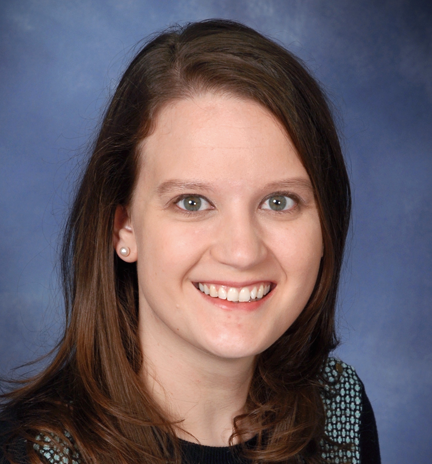
Clinical genetics, syndrome delineation, dysmorphology and advancing technologies, phenotype integration in genomic sequencing, care coordination for children with complex medical needs
Anna C.E. Hurst, MD, MS, is an assistant professor of medical genetics in the department of genetics at the University of Alabama at Birmingham. She trained as a genetic counselor at the University of South Carolina School of Medicine (Columbia) and then completed her medical degree at the Medical University of South Carolina (Charleston). She is a board-certified pediatrician who completed pediatrics residency at Wake Forest Baptist Health (Winston-Salem, NC) and a medical genetics residency at UAB. Hurst is a clinician for the UAB Undiagnosed Disease Program, skeletal dysplasia clinic, and general genetics, and she provides genetic inpatient hospital consultations for patients at UAB and Children’s of Alabama. Her clinical interests include dysmorphology and congenital anomaly syndrome delineation, and she serves on the Scientific Advisory Board for Facial Dysmorphology Novel Analysis (FDNA). Her research focuses on expanding the availability of genomic sequencing for children with complex healthcare needs and incorporating phenotypic information into the interpretation of genomic data.
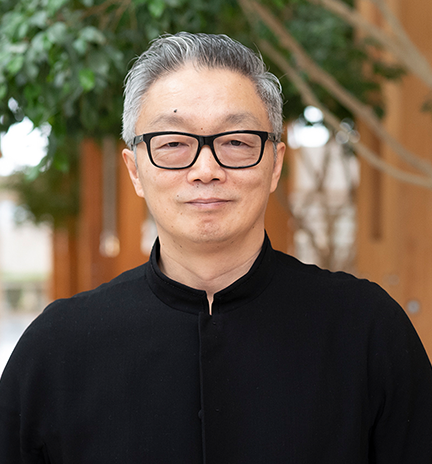
Technology development to advance medical science
Jian Han, MD, PhD, has more than 30 years of experience developing molecular diagnostic technologies and products. He is interested in developing integrated solutions for molecular differential diagnosis and developing a technology platform that allows multiplex molecular differential diagnoses to carried out in a fashion that is high throughput, semi-quantitative, automatic, and in a closed system. He studies the immunorepertoire of different autoimmune diseases and cancers using multiplex PCR and high-throughput gene sequencing. As the director of the R10K project, Han leads a team that is sequencing 10,000 samples and studying biomarkers for 100 diseases. He earned his MD from ShuZhou Medical College in China in 1983 and his PhD in clinical molecular genetics from the University of Alabama at Birmingham in 1991. He was founder, CEO and CSO of Geneco Biomedical Products before joining HudsonAlpha in 2007. He founded two HudsonAlpha associate companies, iRepertoire and iCubate, in 2009.

Genomic instability in cancer cells and the role of noncoding RNAs in differentiation and cancer
Anindya Dutta, PhD, MBBS, is currently the Chair of Biochemistry and Molecular Genetics at the University of Virginia, and is the incoming Chair of the Department of Genetics at the University of Alabama at Birmingham School of Medicine. Dutta received his Bachelor of Medicine-Bachelor of Surgery (MBBS) from Christian Medical College, Vellore in India, and his Ph.D. from Rockefeller University in New York. He completed a residency in medicine at Christian Medical College Hospital in India, a postdoctoral fellowship at Cold Spring Harbor Laboratory supported by the American Cancer Society, and a residency in pathology at Brigham and Women’s Hospital in Boston, Massachusetts. His laboratory identified many of the replication initiation proteins in human cells, used genomics technology to identify hundreds of origins of replication in human chromosomes, discovered a major mechanism by which human cells prevent over-replication of their DNA, and identified a novel class of circular DNA present in normal mammalian cells. His laboratory is currently working on long noncoding RNAs that regulate cancer progression and a novel family of short regulatory RNAs called tRFs. He has served as Editor for Journal of Biological Chemistry and Associate Editor for Cancer Research. He has trained over thirty-five scientists who continue research in academia or industry and has received the following honors: Elected Fellow of the AAAS, Ranbaxy Award for studies on genome instability and the Outstanding Investigator Award of the American Society for Investigative Pathology.
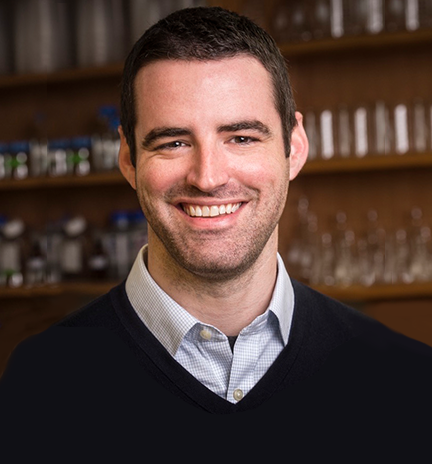
Genetic and epigenetic regulation of neuronal function and the role of gene regulation mechanisms in cognitive and neuropsychiatric disease states
Jeremy Day, PhD, is an assistant professor in the Department of Neurobiology at the University of Alabama at Birmingham. Day received his PhD from the University of North Carolina at Chapel Hill in 2009 and completed a postdoctoral fellowship at UAB in the Department of Neurobiology. He joined the neurobiology faculty at UAB in 2014, where his lab investigates the neurobiology of reward-related memory systems in the brain and the role of these circuits in drug addiction. His research integrates molecular, physiological, behavioral, genetic and epigenetic tools to understand how experience alters the brain and how those changes drive future behaviors. Currently his lab is harnessing whole genome sequencing technology and genome editing tools to define how epigenetic and genetic mechanisms contribute to brain pathology in animal models of addiction. The ultimate goal of this work is to manipulate epigenetic or transcriptional patterns within selected brain regions to achieve therapeutic outcomes for brain diseases. Research in his laboratory is supported by grants from the National Institute on Drug Abuse, the National Institute of Mental Health, and support from the Civitan International Research Center and the UAB Pittman Scholar program.
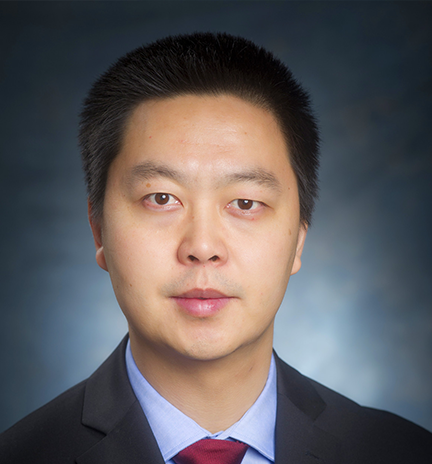
Developing methods to characterize structural variants (SVs), the mechanisms of SV formation, and the function and clinical impact of SVs.
Zechen Chong, Ph.D., is an Assistant Professor of Genetics and Informatics Institute at Heersink School of Medicine at University of Alabama at Birmingham. Chong received his bachelor’s degree in engineering in the Department of Computer Science and Technology at Harbin Institute of Technology, China, and his master’s degree in bioinformatics and Ph.D. in Genomics in Beijing Institute of Genomics, Chinese Academy of Sciences, China. He was trained as a postdoctoral fellow at The University of Texas MD Anderson Cancer Center in Houston. He joined UAB as a tenure-track Assistant Professor in 2017. His research focuses on developing novel algorithms applied to sequencing data, especially the new sequencing platforms such as PacBio, Nanopore, Bionano, 10X Genomics, etc., and applying innovative computational approaches to solving fundamental biological questions on a hypothesis-driven basis. Particularly, his group is interested in developing new methods to comprehensively characterize structural variations (SVs), providing novel insights into the mechanisms of SVs formation, and exploring the function and clinical impact of SVs. His group is actively involved in nationwide or international projects, including Human Genome Structural Variation Consortium (HGSVC), International Cancer Genome Consortium (ICGC) and The Cancer Genome Atlas (TCGA), and the Trans-Omics for Precision Medicine (TOPMed). In addition, his group has extensive local and nationwide collaborations. These projects have provided tremendous resources to achieve the research goals of the lab and the mission of the lab – “Making Sense of Biology using Bioinformatics”.
– ORCID

Comparative and evolutionary genomics of crops
John Lovell, PhD, is a Research Faculty Investigator in the HudsonAlpha Genome Sequencing Center. His research interests include expanding pan-genome methods beyond single-species systems and developing computational tools to explore sequence variation across multiple reference genomes.
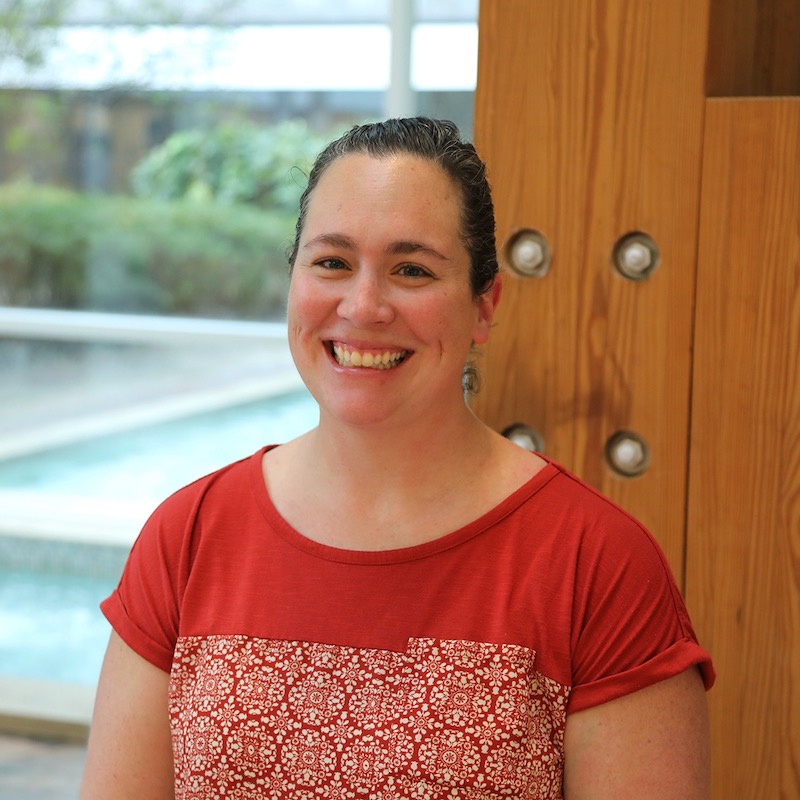
Genomic approaches for the diagnosis of rare diseases
Susan Hiatt, PhD, is a Research Faculty Investigator in Greg Cooper’s lab at HudsonAlpha. Her research focuses on using genomic technology to increase the diagnostic yield for patients with rare, undiagnosed diseases. Approaches include implementing new, cutting-edge sequencing techniques into the analysis pipeline and identifying new disease genes.
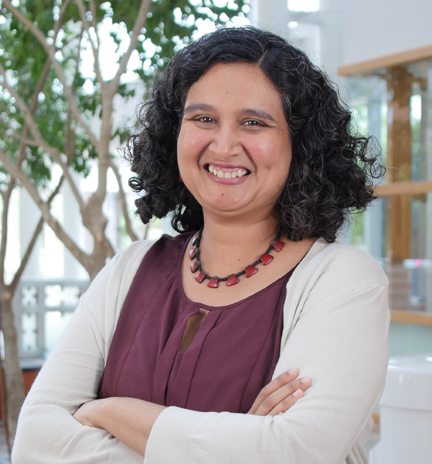
Understanding the role of the rhizome in resource reallocation and perenniality.
Kankshita Swaminathan, PhD, studies the role of the rhizome in nutrient storage and reproduction in plants. She is interested in how perennial plants remobilize nutrients year after year.

Whole genome sequencing and assembly, population genomics
Jeremy Schmutz co-directs the Genome Sequencing Center at HudsonAlpha, managing one of the few centers in the world that produces, analyzes and interprets genomic data on economically important plant and organism species to improve crop breeding and other agricultural practices.

Genomic and genetic analysis of human traits and diseases.
Richard M. Myers, PhD, is Chief Scientific Officer, President Emeritus, ]M. A. Loya Chair in Genomics, and Faculty Investigator at the HudsonAlpha Institute for Biotechnology. The Myers lab focuses on using genomics tools and genetics to understand how changes in gene expression contribute to human health and disease, as well as to basic biological processes.
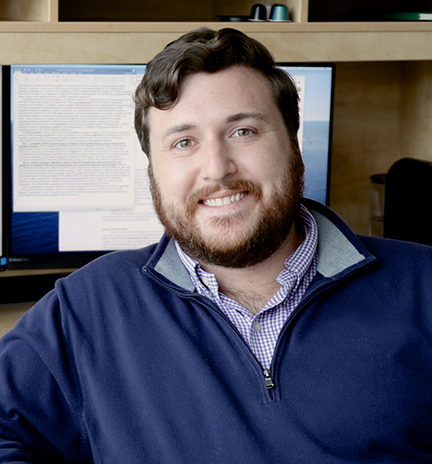
Plant Reproductive, Evolutionary, and Comparative Genomics
Alex Harkess , PhD studies plant reproductive, evolutionary, and comparative genomics. His research has focused on the evolution and function of small RNA pathways, the evolution of sex chromosomes in plants, and broad-scale comparative genomics.
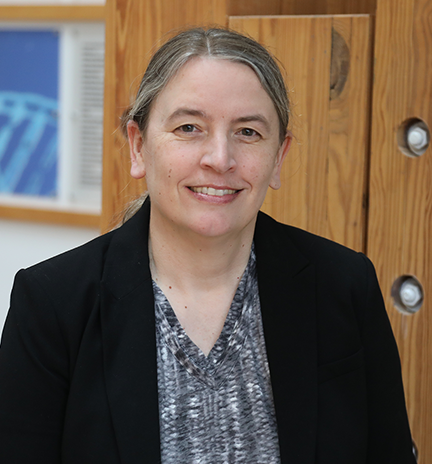
Genomic resource development for plants
Jane Grimwood, PhD, co-directs the Genome Sequencing Center at HudsonAlpha, managing one of the few centers in the world that produces, analyzes, and interprets genomic data on economically important plant species to improve crop breeding and other agricultural practices. In 2022, she was named Loretta Purdy Spencer Chair in Genomics.
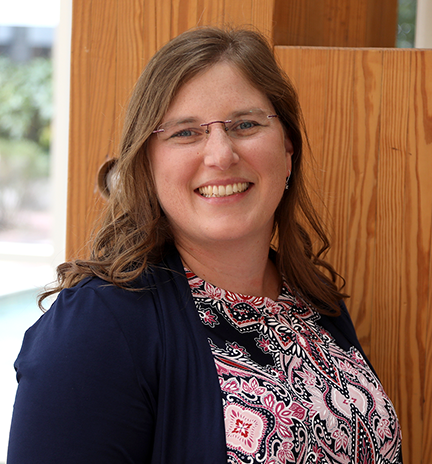
Metabolomics
Sara Cooper, PhD, focuses on combining metabolomics with genomics and applying that data to pancreatic and ovarian cancer.
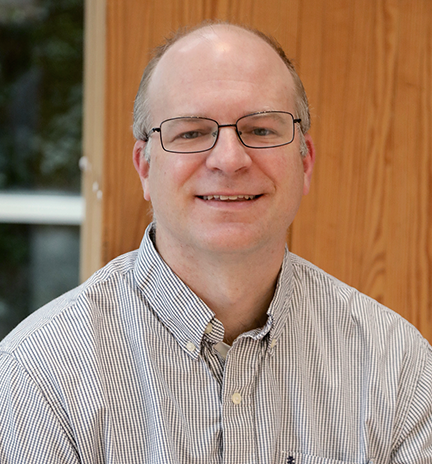
Human Genetics and Genomics
Greg Cooper, PhD, researches the structures, functions and evolutionary histories of human genomes, with an emphasis on applying genomic approaches to study human disease.
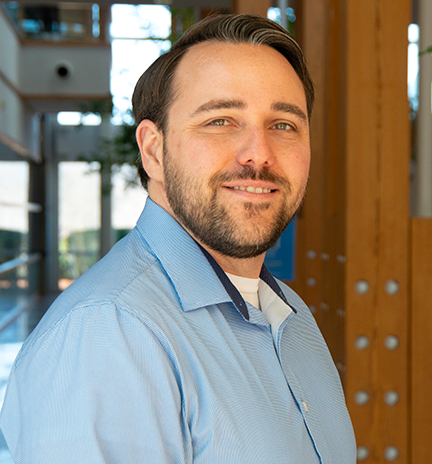
Genomic approaches for the diagnosis and treatment of Alzheimer disease and other dementias.
Nick Cochran, PhD, focuses on genomic approaches for the diagnosis and treatment of Alzheimer disease and other dementias, with an end goal to improve the lives of those affected by neurodegenerative diseases.
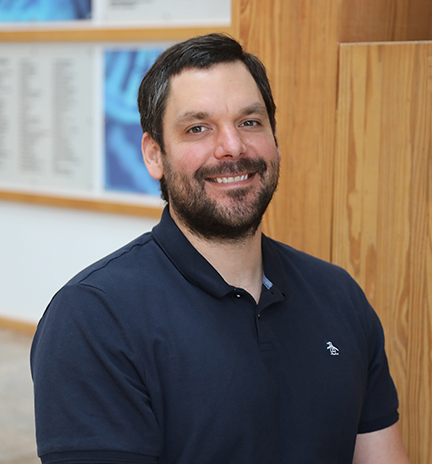
Using genomics for crop improvement
Josh Clevenger, PhD, focuses on using genomics for crop improvement, especially crops in the southeast and Alabama.
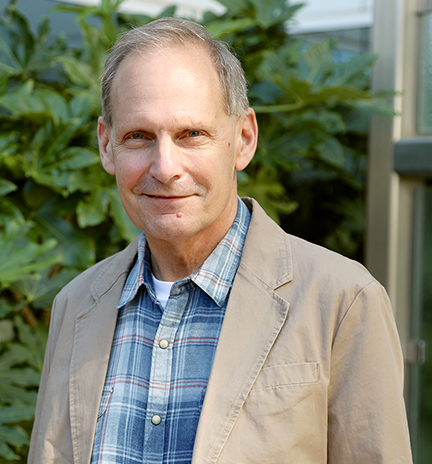
Genetic architecture of morphologic variation
Greg Barsh, MD, PhD, Smith Family Chair in Genomics at the HudsonAlpha Institute for Biotechnology, studies the genetic mechanisms that underlie differences in individual appearance and that could give new insight into both basic biology and human disease.
